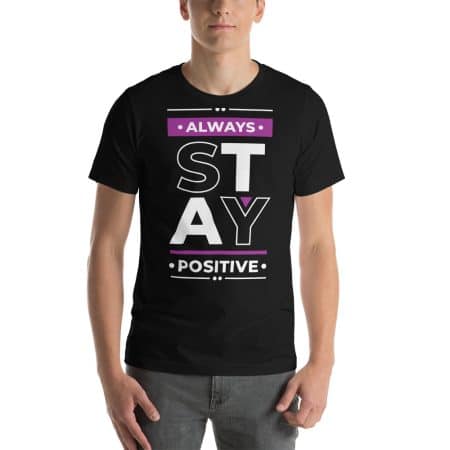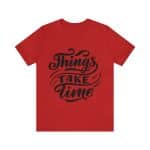How many times in life have you had or overheard a conversation like: “They say it’s going to rain tomorrow,” “They found a new cure for the common cold,” or even “they don’t make them like they used to.”
While these are great conversations, and the statement might hold truth – for example, the prediction of rain comes true or the remedy for the typical cold works – the issue here is not about whether “they” are right or wrong. It’s about understanding who “they” are and how we should react to what ‘they’ say.
Who Are They? Why The Source Matters
Without knowing who ‘they’ are creates a state of uncertainty. It’s akin to listening to a masked speaker, we may trust their words, but we don’t know who’s behind the mask. And that can be problematic, especially when the information ‘they’ are sharing impacts our decisions and actions.
For example, “They say it will rain heavily tomorrow.” If “they” is a professional weather forecasting service, their prediction likely stems from analyzing various meteorological data. The information is science-based and probably has a relatively high degree of accuracy.
But what if “they” is a superstitious neighbor who believes aching joints predict rain? The reliability of the information changes drastically. In one scenario, you might cancel a planned day at the beach. On the other, you might take a wait-and-see approach before changing plans.
The same goes for “They found a new cure for the common cold.” This breakthrough could benefit millions if “they” refers to a reputable research institute. But if “they” is a social media influencer promoting a health supplement, the so-called “cure” might be part of a bigger, more overreaching, or undisclosed marketing campaign.
Lastly, let’s discuss the last statement, “They don’t make them like they used to.” If “they” refers to manufacturers or craftsmen, this statement might represent a genuine product quality or design shift. But if “they” are your beloved nostalgic friends who always think the past was better, it’s an opinion that may not reflect the actual quality or value of contemporary products.
Information Quality Matters

Understanding who “they” are allows us to evaluate the information “they” share and make informed decisions. If we unthinkingly trust what “they” say without questioning the source, we risk being misled or manipulated.
Now, you might wonder, “how do I identify who ‘they’ are?” Well, it starts with asking questions: Who is saying this? What are their credentials? Do they have a vested interest? Is there corroborative evidence from other reputable sources? Developing this kind of inquiry mindset can significantly enhance our ability to discern fact from fiction.
Remember, in our information-driven world, knowing and understanding who the source, collectively known as “they,” is beneficial and essential for critical thinking.
Accurate information helps us separate the wheat from the chaff and extract valuable insights from the mere noise. As we continue to engage with information daily, let’s not forget to ask: who is “they?” By doing so, we equip ourselves with the right tools to navigate the complexities of our modern world.
Let’s use another example. You’re enjoying a meal with your family when your uncle casually mentions, “They say carrots improve your vision.” It’s a statement we’ve all heard before!
But let’s take a moment to ponder; who exactly is ‘they’? Could ‘they’ be a dedicated scientist behind a groundbreaking study, a renowned health magazine sharing insights, or perhaps it’s merely an age-old myth passed down through generations?
The reality is we must delve beneath the surface to uncover the truth. This unidentified entity could sway our perceptions and choices if we fail to discern who ‘they’ are.
The History Behind “They Say”
The phrase “they say” is as old as language itself. Historically, it’s been a way to express a collective thought or belief without specifying who exactly holds it. However, in this era of information overload, discerning who ‘they’ is has become more critical than ever.
Why? Because not all information sources are created equal. Some have thorough research and fact-checked, while others on opinions, misinformation, or even (and unfortunately) deliberate falsehoods.
Getting To The Source
Does this mean we should automatically distrust every information prefixed by ‘they’? Of course not!
Often, “they” refers to experts in a particular field. For example, when ‘they’ recommend washing hands to prevent disease spread, ‘they’ is likely public health professionals. Listening to “they” could save lives and promote better community health in these cases.
The problem arises when we don’t know who ‘they’ are or when ‘they’ are used to spread misinformation or baseless claims. Without a clear source, we’re unable to evaluate the reliability of the information. It’s like navigating a ship without a compass – we might get lucky and hit the mark or end up hopelessly off course.
Who Are They? It Is A Question That Begs For An Answer
So, how can we better understand who ‘they’ is? The answer is simple: question, question, question. When you encounter ‘they,’ ask: Where is this information coming from? Is it based on research or fact? Is there a potential bias or conflict of interest? This habit of critical thinking can help us discern the truth and make informed decisions.
Not knowing who ‘they’ are could lead to confusion and misinformation. But, with curiosity and critical thinking, we can uncover who ‘they’ is and empower ourselves with accurate knowledge. The next time you hear “they say,” don’t just accept it—question it. Ask who ‘they’ are. Because understanding ‘they’ is the key to decoding our daily narratives and making sense of the world around us. Let’s strive to replace the ambiguous ‘they’ with solid facts and reliable sources. After all, knowledge is power!
To wrap up, ‘they’ can be anyone from experts to salesmen, and knowing who ‘they’ is helps us understand the information better. Let’s be curious, question the sources, and strive for a clearer, more informed perspective. It’s not just about knowing the world better but also about better knowing ourselves and how we interpret it. So, who’s ready to decode the daily narrative and discover who ‘they’ really are?
-
Shop the Dream Chasing T-Shirt – Unisex Heavy Cotton Tee | Comfort & Style$15.29 – $24.09
-
Green Urbanism Tee – Sustainable and Eco-Friendly T-Shirt$28.43 – $29.93
-
Always Stay Positive T-Shirt$15.95 – $24.55








